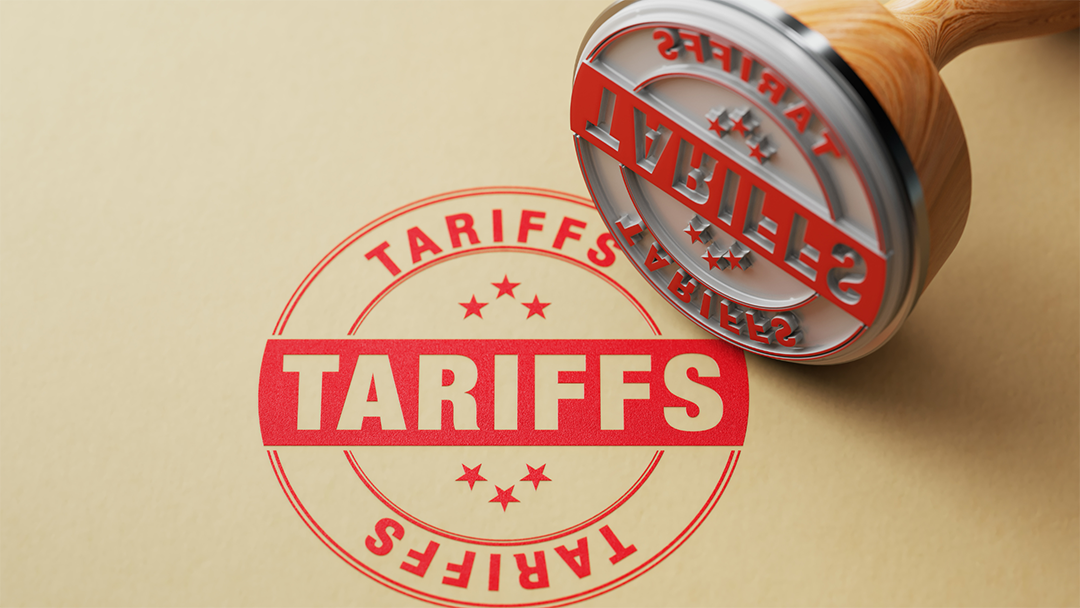
The United States presidential election is over, and American voters have made their choice. Regardless of how you voted, it is now time to evaluate the potential consequences for our industry. The possible imposition of tariffs on heavy-duty aftermarket parts will have varying effects, and it should prompt buyers to consider American-made aftermarket parts more than ever. Here’s a breakdown of the impacts of these tariffs and the potential benefits of choosing American-made parts:
The Effects of Tariffs on Heavy-Duty Aftermarket Parts
Increased Costs for Imported Parts
- Higher Prices: When tariffs are applied to imported parts, it raises the price of those parts, making them more expensive for distributors, repair shops, fleet operators, and consumers. This price increase could potentially be passed on to the end consumer, making repairs and maintenance more costly.
- Impact on Popular Aftermarket Brands: Many heavy-duty aftermarket parts are sourced from countries with lower manufacturing costs, such as China, Mexico, and India. Tariffs on parts from these regions can make them significantly more expensive, particularly for price-sensitive buyers.
Supply Chain Disruptions
- Delays and Shortages: Tariffs can create delays in supply chains as manufacturers and distributors adjust to the higher costs and navigate the complexities of customs procedures. Parts might be delayed, and there could be shortages, particularly for more specialized components.
- Sourcing Challenges: Companies may need to find alternative sources or suppliers in regions not subject to tariffs, such as the U.S., Canada, or Europe. This process may take time and incur additional costs.
Shift to Alternative Parts
- Cheaper Alternatives: Faced with higher prices for imported parts, buyers may turn to cheaper alternatives, which may include low-quality parts or remanufactured components. The demand for remanufactured parts may increase if they are exempt from tariffs or if the cost difference makes them an attractive option.
- Innovation in Domestic Production: If tariffs on imports are significant enough, U.S.-based manufacturers of aftermarket parts may ramp up production to meet domestic demand, potentially leading to an increase in the availability of American-made parts. This shift could help mitigate the impact of tariffs on the overall market.
Price Sensitivity in the Market
- End-User Impact: Higher costs due to tariffs can result in price increases for end-users, whether they are truck fleets, repair shops, or independent mechanics. This could lead to delays in maintenance, or companies may seek cheaper options, impacting the quality of repairs and vehicle longevity.
- Operational Pressure on Small Businesses: Smaller businesses in the supply chain (distributors, repair shops) may have less negotiating power and be more affected by price hikes from suppliers, making it harder for them to remain competitive.
Should Buyers Consider American-Made Parts?
Advantages of Choosing American-Made Aftermarket Parts
- Avoiding Tariffs: One of the most immediate benefits of choosing American-made parts is that they are not subject to import tariffs, which can make them more cost-competitive compared to imported alternatives. This could help buyers avoid the price hikes caused by tariffs on foreign parts.
- Support for Domestic Economy: Purchasing American-made parts supports local manufacturing, jobs, and the U.S. economy. For buyers who value local industry, this can be an important factor.
- Faster Delivery and Reliability: U.S.-manufactured parts are less likely to face supply chain disruptions due to international trade issues. Shipping delays, customs hold-ups, and geopolitical factors are less of a concern when sourcing domestically.
- Higher Quality and Compliance with Regulations: U.S. manufacturers are subject to stringent quality standards and regulatory oversight, particularly in industries like heavy-duty equipment. Buyers may perceive American-made parts as more reliable or compliant with regulatory standards, particularly for safety-critical components.
- Reduced Supply Chain Risk: By purchasing from domestic sources, buyers may reduce their exposure to global trade risks, such as tariff volatility, exchange rate fluctuations, or geopolitical tensions (e.g., trade wars, sanctions).
In a nutshell, here are the things that buyers must consider:
- Long-Term Value vs. Short-Term Cost: While American-made parts may carry a premium upfront, they could represent better long-term value in terms of durability, quality, and reliability. For fleets or businesses that need parts for long-term vehicle maintenance, choosing American-made components could reduce the risk of costly repairs down the line.
- Total Cost of Ownership: The cost of parts is only one element of maintenance and repair. American-made parts may offer better warranties, customer service, and easier availability of replacement parts, which can reduce the total cost of ownership over the life of the vehicle or equipment.
- Brand Reputation: Certain American brands may be seen as more reputable and trusted, which can be a major factor in the decision-making process, especially when parts are critical for vehicle safety and performance.
Conclusion:
The impact of tariffs on heavy-duty aftermarket parts will likely increase costs, cause supply chain disruptions, and shift demand toward alternative products. For buyers, considering American-made parts is a smart strategy for several reasons, such as avoiding tariff-related price increases, ensuring faster delivery, and supporting domestic manufacturing.
Peterson Manufacturing Company
Founded in 1945, Peterson Manufacturing Company is a world-leading innovator in the design, engineering and manufacturing of a complete line of commercial vehicle/trailer safety lighting and harness systems. With headquarters in the greater Kansas City area, Peterson is a privately held company. An ISO 9001:2015 certified company, Peterson Manufacturing is a key subsidiary of Peterson Corporation, five highly specialized companies and nearly 700 associates working in global transportation-related industries. For more information, visit PMLights.com.
